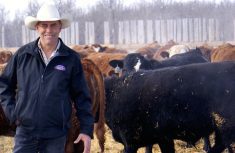The Canadian Cattlemen’s Association (CCA) is working on several fronts to ensure the priorities of beef producers are top of mind with lawmakers in Ottawa before Parliament adjourns for the summer. The CCA is advocating for change on crucial regulatory matters to ensure the perspective of Canada’s beef industry is heard and considered by government. As always, CCA’s aim is to ensure producers have a realistic regulatory environment to work within to ensure the beef sector remains a leader of sustainable growth in Canada.
The recently announced changes to animal transportation regulations are among CCA’s priority topics. Producers and transporters are strongly committed to ensuring the health and welfare of the animals in their care; accordingly, the federal government’s decision to reduce the number of hours cattle can be in transit is a source of considerable concern among beef producers. Reducing the hours in transit means that cattle will have to be unloaded more frequently for feed, water and rest, potentially increasing the risk of injury during the loading and unloading process, as well as increasing stress on the animals. Increased opportunities for comingling may also increase the potential to spread disease among livestock. These are not desirable outcomes if the government’s stated goal is to enhance animal welfare.
Read Also

What to know before you go to Agribition 2025
If you’re attending Agribition 2025, this is the place to find out about tickets, dates and what’s happening this year.
Producers are requesting that these regulatory changes be delayed until ongoing research about stress caused during unloading and reloading is completed to better inform the regulations. The anticipated completion date for this research, funded by the federal government and industry, is 2022. As existing research by Agriculture and Agri-Food Canada shows 99.5 per cent of cattle on long hauls more than four hours and 99.98 per cent of cattle on short hauls less than four hours arrive at their destination in good condition, producer associations are making it a priority to discuss the risks and consequences of the regulations as they stand during Fly-In Days in Ottawa. Beef Farmers of Ontario, Manitoba Beef Producers, Alberta Beef Producers, Quebec Cattle Producers, and Saskatchewan Cattlemen’s Association have or are scheduled to bring their views to Ottawa before Parliament adjourns this month.
In May, CCA appeared before the Senate Committee on Fisheries and Oceans to provide comments on Bill C-68, the act to amend the Fisheries Act. Key among these efforts was asking the Senate to remove a last-minute addition of a greatly expanded definition of fish habitat in the Fisheries Act that will make it nearly impossible for beef and agricultural producers to comply, as part of a suite of recommendations regarding Bill C-68. The CCA appreciates the Senate committee granting its request to appear before them to share the perspective of Canada’s beef industry on this important issue.
CCA staff shared our perspective on the labelling and marketing of meat, plant-based proteins and lab grown proteins at Health Canada’s 2019 Food and Nutrition Stakeholder Engagement Session in Ottawa. The CCA’s view is that for a product to be labelled or marketed as meat it must meet the legal definition of “meat” or “meat byproduct” as defined in the Food and Drug Regulation.
At the recent Beef Value Chain Roundtable in Ottawa, a joint session with the Pork Value Chain Roundtable was held for the first time. The session enabled collaborative discussion on essential regulatory and policy matters impacting competitiveness in both red meats including labour shortages, livestock disease management strategies, and transportation regulations.
On the trade front, CCA officer Reg Schellenberg and I attended the annual general assembly of the Confederación Nacional de Organizaciones Ganaderas (CNOG) in May. We participated in the Trilateral Leaders’ meeting along with National Cattlemen’s Beef Association (NCBA) leadership. Trade was a high-profile topic at the meeting with discussion focused on the ratification of the U.S.-Mexico-Canada Agreement (USMCA) — known in Canada as the Canada-U.S.-Mexico Agreement (CUSMA) — and the potential that beef trade could be drawn into further retaliation tariffs. The three leaders prepared a letter, which has since been sent, to Canadian Prime Minister Justin Trudeau, U.S. President Donald Trump, and Mexico’s President Andrés Manuel López Obrador, urging the swift ratification and implementation of the USMCA.
There was also unilateral support at the meeting to reject policies that aim to segregate the highly integrated nature of the North American beef industry. During the CUSMA negotiations key CCA objectives, including maintaining tariff-free market access and ensuring country-of-origin-labelling (COOL) remained out of the agreement, were achieved largely due to the strong opposition of the NCBA to COOL.
The meeting was the first CNOG annual assembly since Mexico changed government last July. The meeting program provided an opportunity for CCA and NCBA to provide presentations to Mexican producers explaining the value of trade to each of our country’s beef producers.
Also at the CNOG annual assembly, Monica Hadarits, executive director of the Canadian Roundtable for Sustainable Beef, participated in a panel to share the sustainability work of the roundtable as well as offer lessons learned to support the development of the Mexican roundtable.
The CCA will continue to do what it takes to address factors contributing to a lack of competitiveness to ensure a robust and sustainable beef industry going forward.
















